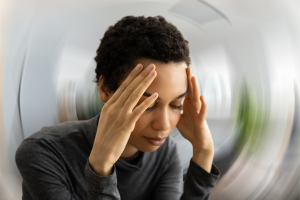In recent years, the emphasis on Sudden Cardiac Arrest (SCA) education has highlighted the critical importance of the immediate response window for survival. At AED.US, we understand that increasing the visibility of AEDs and the number of CPR-certified individuals is crucial in reducing mortality rates. However, these life-saving measures are reactive, coming into play only after an SCA event. This raises the question: can we do anything proactively to prevent SCA? Are there identifiable warning signs before an SCA occurs? The term "Silent Killer" often describes SCA, implying unpredictability and inevitability, but is this true? In the past year, esteemed organizations like the Mayo Clinic have begun emphasizing the importance of education for coaches, recreational program leaders, and school teachers about the potential warning signs of SCA. Recognizing these signs may not prevent SCA entirely, but we can create a more prepared and responsive environment. Early awareness could lead to quicker intervention and potentially save lives.
How The Heart Reacts: Heart Attack Vs. Sudden Cardiac Arrest
A heart attack occurs when blockages in the heart's arteries prevent blood from circulating properly. A healthy diet and regular exercise can often prevent this condition. In contrast, Sudden Cardiac Arrest (SCA) is caused by "rapid, erratic heart signals that make the lower heart chambers quiver uselessly instead of pumping blood," according to the Mayo Clinic. While these internal events are not visible to the untrained eye, external signs and symptoms can be observed. Recognizing these clues in a patient can prompt immediate action and potentially save lives.
5 Key Symptoms To Notice Before SCA Strikes
Studies show that certain symptoms when noticed and treated quickly, may prevent the onset of Sudden Cardiac Arrest. Below are five common warning signs of Sudden Cardiac Arrest:
- Chest discomfort. When a person complains of pain in their chest, immediately take them to urgent care for further testing.
- Shortness of breath. If you notice someone breathing heavily or wheezing, this could be a sign that the heart is about to stop.
- Dizziness, lightheadedness, or feeling faint. This type of symptom may also include suddenly feeling tired for no reason.
- Fast-beating, fluttering, or pounding heart. These are called palpitations or arrhythmia and should be checked out by a cardiac professional immediately.
- Sudden extreme sweating, stomach pain or sudden nausea.
If you notice someone experiencing any of these symptoms, call 911 or emergency medical services immediately. However, if it is truly SCA, you cannot afford to wait for first responders to arrive within 10 minutes. As you read this, take a moment to identify the location of the nearest AED in your building or area. How quickly could someone retrieve it and return to where you are right now?
When Warning Signs for Sudden Cardiac Arrest Become Critical
Even with visible symptoms, Sudden Cardiac Arrest can still occur unexpectedly. Recognizing the warning signs just one or two minutes before an event can be the difference between saving a life and a tragic outcome. That's why AEDs and CPR training from AED.US are essential. These life-saving tools and knowledge can significantly impact the success of emergency responses. While SCA may seem unpredictable, being proactive and prepared can make all the difference. Don't wait for the warning signs of SCA. Get prepared today by calling AED.US at 888-652-1882.



